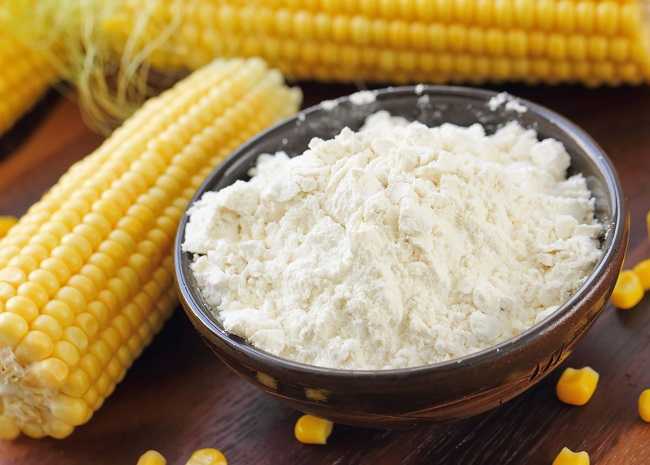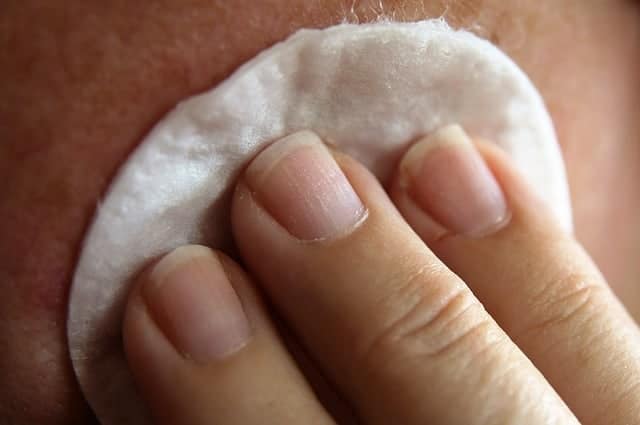Can you eat cornstarch? Cornstarch is a famous cooking ingredient used to thicken liquids. It is a byproduct of corn, and you will commonly find it in corn-made sugars and syrups. Cornstarch is known to give a unique flavor when added to your recipes.
Additionally, cornstarch is a refined form of carb; hence eating it in small quantities is best for your health. However, as a refined carb, eating cornstarch regularly might harm your health, so eating cornstarch in moderation is recommended.
You will find more information about cornstarch and its ways of eating in this blog. To find answers to all your cornstarch-related queries, keep reading this blog!
What is cornstarch, and can you eat it?

Cornflour or cornstarch is a highly refined form of carbohydrate. The white powdery substance is extracted from the endosperm of corn. Cornstarch is primarily a thickening ingredient in sauces, gravies, marinades, soups, and indifferent desserts.
Cornstarch or cornflour is only made from corn; unlike other flours, it contains carbohydrates and no protein. Therefore, cornstarch is gluten free. Due to this reason, cornflour is preferred as a gluten free thickener over other flour thickeners.
Cornflour is transparent and does not have any taste making it the best thickening ingredient for different dishes. It is used as an anti-caking and moisture-absorbing agent as well. In addition, it prevents food items like cheese from clumping and prevents the slimy texture.
Cornstarch is a highly multifunctional ingredient. As a result, it is not just used for cooking but in other fields too. Cornstarch, for example, is used in plastics, baby powder, batteries, and cosmetics.
Yes, you can consume cooked cornstarch. Raw cornstarch, however, is not recommended to eat. Raw cornstarch may contain harmful bacteria, which is why it is not safe to eat it uncooked. Also, eating cornstarch regularly might harm your health.
Nutritional benefits of cornstarch
As a curious reader, you must be wanting to know the nutritional benefits of cornstarch. Let’s find them out-
Nutritional benefits of one cup of cornstarch:
- Calories- 488
- Protein- 0.5 gram
- Fiber – 1 gram
- Selenium -7% of the DV (daily value)
- Carbohydrates – 117 grams
- Manganese – 3% of DV
- Copper – 7% of DV
- Iron – 3% of DV
As you can see, cornstarch is only a source of carbohydrates, but it lacks other nutritional properties like vitamins, minerals, fiber, protein, etc. Because these additional nutrients are absent from cornstarch, it is considered a non-food material. Therefore, other than calories, you are unlikely to find any different nutritional values from cornflour.
Are there health benefits if you eat cornstarch?
Cornstarch does not have many health benefits, as you might have already guessed, seeing its nutritional components. One of the few benefits of cornstarch is it is low in sodium, fat, and cholesterol.
If you are intolerant to gluten substances, cornstarch can be a good alternative as it is gluten free. As a sole source of calories, skinny people might find eating cornstarch beneficial. It enhances calorie intake quickly, which might help in gaining weight.
Side effects of eating cornstarch
Just like every coin has two sides, eating cornstarch comes with its adverse effects as well. Eating mindfully and in moderation is fine, but exceeding that limit will leave harmful effects on your health. Let’s see what health issues you will face if you consume too much cornstarch.
- It might affect your heart health
Cornstarch is solely made from corn’s endosperm. It means other nutritional benefits of the grain are removed, and it is considered processed food. As a result, it is a refined carbohydrate. Such refined carbohydrates can increase the risk of coronary heart diseases, increase insulin levels, type 2 diabetes, lower the levels of good cholesterol, and lead to high blood pressure and obesity.
- It might increase blood sugar
Cornstarch contains a high glycemic index and carbohydrates, and it is low in fiber. Therefore, it will slow down the assimilation of sugar into the bloodstream. This makes cornstarch a rapid digestive item that may increase your blood sugar. Hence, it should be strictly avoided by type two diabetes patients.
- It does not contain any essential nutrients
By now, you must have known that cornstarch only contains carbohydrates and calories. Other nutrients like fiber, protein, minerals, proteins are almost absent from it. It has micronutrients like sodium and manganese, but you need to consume a higher quantity to get their benefits.
Can you eat raw cornstarch?

As mentioned earlier, eating raw cornstarch is not recommended. If you crave raw cornstarch, it is usually related to a zinc or iron deficit in people. This habit of eating raw cornstarch is also known as “pica.” It is a disorder in which people crave non-food items like chalk, paper, charcoal, etc.
The craving for starch items like cornstarch is usually known as amylophagia, a branch of pica. Eating raw cornstarch is not recommended anyway because it may lead to indigestion and bloating. The presence of bacteria in cornstarch also does not make it edible in raw form.
Usage of cornstarch, other than cooking
Cornstarch can be used for specific skin conditions. For example, if you have diabetes and face diabetes-related foot infections using cornstarch or talcum powder can help prevent these infections. This is because cornstarch helps to keep the moist areas of the body dry.

Applying cornstarch in the skin also helps to relieve pruritus, according to the National Cancer Institute. Pruritus is a skin condition that makes your skin itchy. It can result from various medical conditions like kidney, liver, thyroid, blood disorders, and cancer. So, applying cornstarch can help you get relief from itchiness.
Conclusion
From the above content, you must have learned whether eating cornstarch is safe or not. As a takeaway, we would like to say that eating cornstarch is safe when taken in moderation. Moreover, it would be best never to consume raw cornstarch as it is not beneficial for your health.
We have also stated the positive and negative impacts of having cornstarch. Therefore, make sure you go through them and see if you have any medical conditions which require you to avoid cornstarch. For any related queries, we are happy to help!
More Posts for You:
